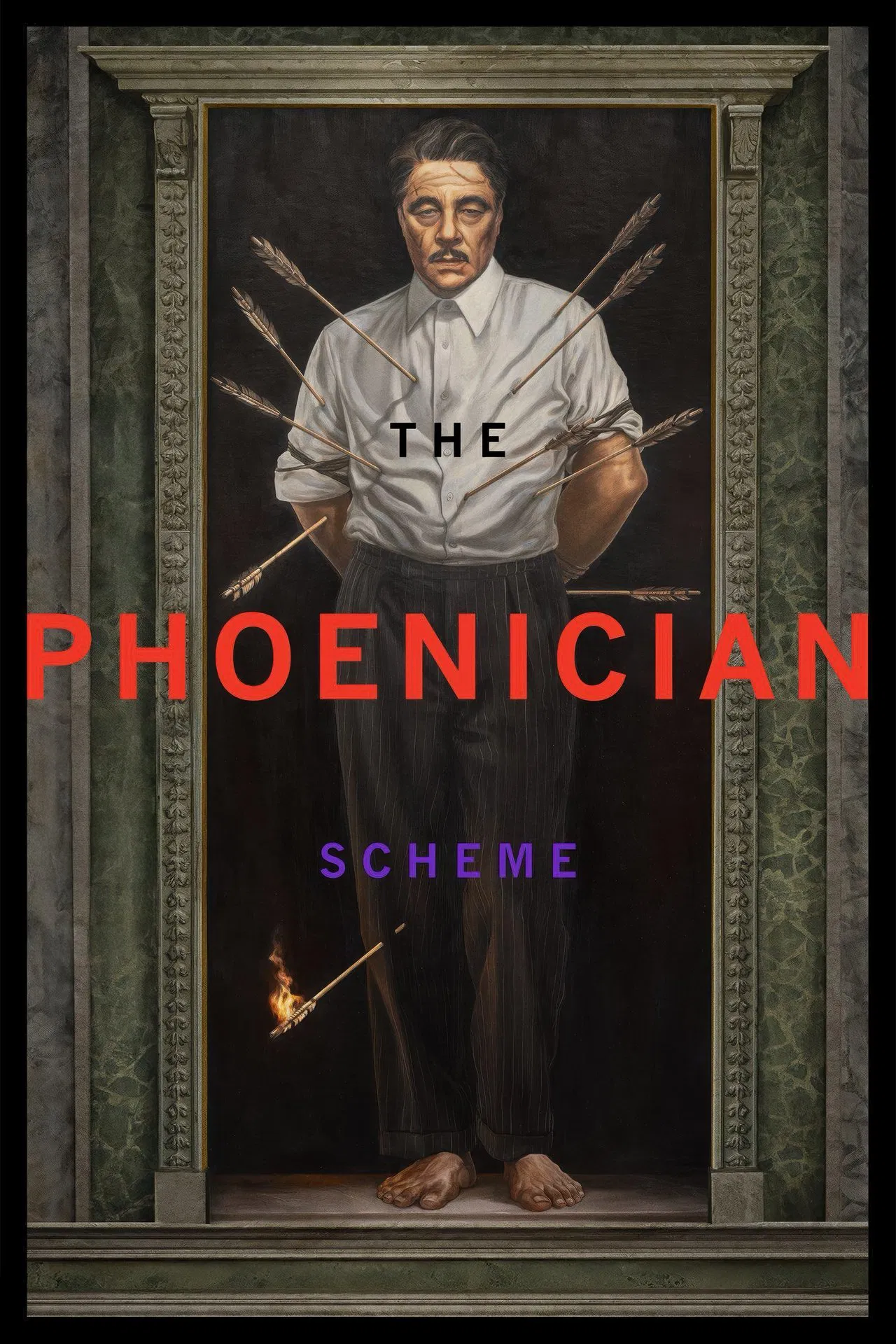
The Phoenician Scheme
2025
Reviewed on: Jun 20, 2025
Review
It's hard not to be swept up in the whimsy of Wes Anderson's films. With their symmetrical and pastel cinematography, their quick-cutting and deadpan dialogue, and their feels-like-a-story-book plots, his films always leave you charmed and delighted. The Phoenician Scheme is no different in these regards. It relies heavily on the eccentricities of its characters and while perhaps the similarities to past Wes Anderson installments are too present, the film still manages to endear us to Zsa Zsa Korda, his daughter Liesl, and his tutor Bjorn all the same.
The Phoenician Scheme follows shady businessman Zsa Zsa Korda (Benicio Del Toro) who, after one-too-many near death experiences, wishes to reunite with his estranged daughter Liesl (Mia Threappleton) who has been living as a nun in a convent. Wanting aid in managing the family's financial affairs, Korda takes Liesl on a whimsical adventure seeking investors to finance his most lucrative plot yet: the Phoenecian Scheme.
There is a lot about Korda that on paper would make him easily detestable. He ostracized his daughter, he supposedly murdered one of his ex-wives, he is entirely motivated by money, and he's openly in support of slave-labor profiteering. Yet somehow, I couldn't help but find him lovably eccentric and easy to root for. For me, this was because he felt like a grandfather. Korda reminds me of that grandfather whose wild stories blur the line between myth and memory. He has survived multiple plane crashes, he's participated in torrid love affairs, he's made powerful enemies, all while not seeming to notice the drama and oddity of his life's experiences. Ultimately his true colors shine through as he settles down in a quieter life with the most important thing to him: his family. It's a touching shift, one that struck a chord with me. Like both of my grandfathers, whose most enduring legacies weren't the stories of their youths but the warmth and wisdom they offered their family, Korda becomes not just a character of absurd adventures, but a lovably eccentric portrait of what it means to finally come home.
Wes Anderson's side characters in Liesl and Bjorn (Michael Cera) also maintain this lovable charm we've come to expect of his ensembles. Yet while individually each character was simply delightful (Cera knocked it out of the park), I wasn't too sold on the romance they end up sharing. As is the case with nearly all of Wes Anderson's films, it's difficult to feel too much about the romantic relationships of his characters. The peculiarities and whimsy of his movies almost undermine any emotional stakes in their apparent relationship. The Phoenician Scheme's light-heartedness detracted from how compelling their love story could have been.
And despite my enduring love for Anderson's filmography and how resonant Zsa Zsa Korda was for me, The Phoenician Scheme felt too familiar. There is something to be said for a director developing an iconic style, but that style shouldn't hinder novelty in storytelling. There was very little that was new about this film. Too many characters feel like reimaginings of ones we've seen before, perhaps due in part to the continued use of his usual troupe of actors. Maybe it's exciting for many to recognize a majority of the cast as big-name stars, but his increasing reliance on familiar faces makes this film feel safe, if still quite charming.
However, even if The Phoenician Scheme doesn't quite break new ground, it succeeds in doing what Wes Anderson does best: crafting a world so stylized, so distinctly his own, that we can't help but get lost in it. Yes, the quirks may feel recycled, and the romance might not quite land—but the heart, especially that of Zsa Zsa Korda, beats strong. For all its familiarity, the film reminded me why I keep returning to Anderson's work in the first place: not just for the aesthetic or the dry humor, but for the unexpected moments of tenderness hidden beneath the whimsy. And sometimes, that's enough.